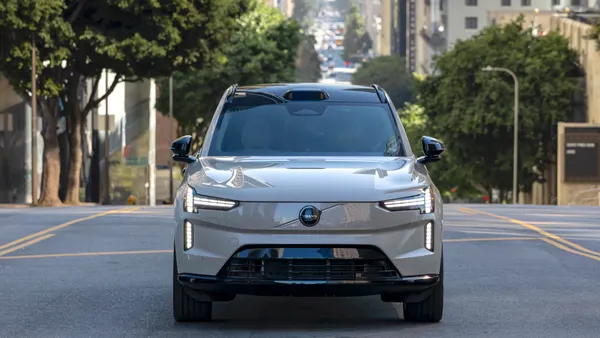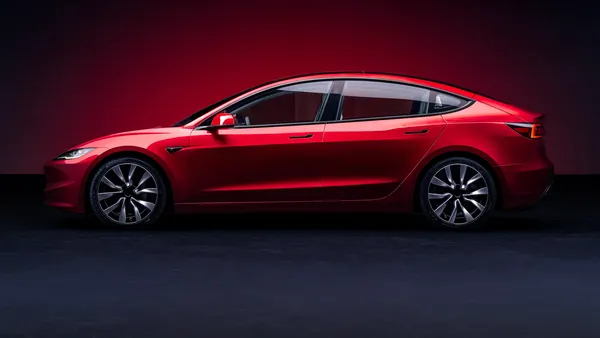Editor's note: This story is part of the WardsAuto digital archive, which may include content that was first published in print, or in different web layouts.
LONDON – The global auto industry is watching closely to determine how the deliberations at this month’s Copenhagen climate conference will affect business.
Attendees from 200 countries are charged with forging a new international climate-change treaty. While the transportation industry largely has evaded the cap-and-trade system that emerged from the outgoing Kyoto Protocol, there is a global consensus the sector in the future must play a part in cutting greenhouse-gas emissions.
Two weeks before international delegates began to gather in the Danish capital, a detailed report from the International Energy Agency outlined how the transport industry could reduce 25% of the carbon-dioxide emissions it produces.
The IEA study calls for a “revolution” in the way the sector operates, with more “green” cars and public transport.
However, given the complexity of allocating responsibility for transport emissions in cap-and-trade programs, it’s highly likely governments will turn to eco-taxation to help force the public into using cleaner vehicles.
The Dutch government last month became the first in Europe to move towards automatic universal road pricing by proposing a tax that charges motorists based on distances driven.
It wants the Netherlands parliament to approve replacing vehicle-sales taxes with the road usage tax by 2012, basing rates on mileage, vehicle weight and tailpipe emissions.
Assuming such taxation policies are the shape of things to come, the question is how the world’s auto makers and consumers respond in terms of vehicle design, production, distribution and marketing.
In Britain, strong opposition to plans to charge drivers on a per kilometer basis has forced the government to put road-pricing proposals on the back burner. However, the Green Fiscal Commission, an influential think-tank that has the ear of the ruling Labor government, is proposing a raft of eco-taxes that also apply to new cars.
The levy would start at £300 ($488), rising annually to £3,300 ($5,367) by 2020. And although Labor is expected to lose the 2010 election to the Conservatives, the party would be “greener” than earlier Conservative governments.
If eco-taxes are supported by government, both the U.K.’s Society of Motor Manufacturers and Traders and ACEA, the European auto makers’ body, will not be happy. Urging fleet renewal as a means to improve environmental performance, they regard such levies as counter-productive, undermining efforts to encourage motorists to buy new, eco-friendly vehicles.
“Government must work with industry and others openly on a new consistent and transparent long-term model for motoring taxation that is fair and helps the industry to deliver low-carbon targets,” SMMT CEO Paul Everitt says.
The ACEA is concerned with the current wide variations in eco-tax systems among the 27 European Union member states.
“Only a harmonized tax system will give the necessary clear market signal, which will be decisive in achieving the desired cuts in CO2 emissions,” says Ivan Hodac, the ACEA’s secretary general. “Fragmentation of systems, furthermore, has a distorting effect on the (EU’s) internal market.”
No such concerns about legislative fragmentation threaten the Japanese market. “As a group, the best-positioned auto makers to deal with any new environmentally related taxes would be the Japanese,” says Chris Richter, a senior analyst at investment group CLSA in Tokyo.
“Toyota (Motor Corp.) and Honda (Motor Co. Ltd.) are ahead with their hybrids, and Nissan (Motor Co. Ltd.) is moving forward with its (electric vehicles,)” he says.
And with EVs, market disruption from fuel taxes is a moot point (green electricity subsidies notwithstanding).
“Our big-picture aim is to move to zero-emissions and to move towards that goal,” says Nissan spokeswoman Pauline Kee. “We’ve said we’ll be the first company to have electric cars on the market.”
As for Japanese and international auto demand being dampened by tough environmental measures arising from Copenhagen and elsewhere, both analysts and auto makers are cautiously optimistic.
“Worldwide demand is fairly depressed already, and nobody is going to sign on for anything that kills off autos,” Richter says, referring to such measures.
Says Toyota spokesman Paul Nolasco: “Policies like paying per-kilometer-driven are likely to have the same effect as very high gas prices had: They won’t stop people using cars, just how far they drive them.”
Differentiated tax measures already have begun in Japan, with reductions and exemptions introduced for low-emissions vehicles (5% of the purchase price) and an annual tonnage levy.
However, while a trend towards fuel- or emissions-linked taxes is starting to take shape in Europe and Japan, the same cannot be said for the U.S., where the subject is so unpopular with drivers that politicians handle the issue with the utmost care.
“The prospect of passing a (federal) fuel tax in the U.S. is small,” says Kim Custer, spokesman for the Association of International Automobile Manufacturers. “Politicians won’t (enact such measures) out of fear of not being reelected.”
Indeed, the failure of the Liberal opposition in neighboring Canada to win a general election last year could be blamed in large part on its unpopular “green shift” policy of raising eco-taxation.
In the U.S., the government is targeting auto makers directly.
The 2007 Energy Independence and Security Act sets a minimum fuel-economy standard of 35 mpg (6.7 L/100 km) by 2020 as a means of reducing CO2 emissions. In May, as part of President Obama’s national fuel-economy announcement, that standard changed to 35.5 mpg (6.6 L/100 km) by 2016.
“Auto manufacturers are already working to provide consumers with more fuel-efficient vehicles” says Wade Newton, spokesman for the Alliance of Automobile Manufacturers, a lobbying group that represents 11 U.S. vehicle producers.
A fuel-economy guide released by the U.S. Environmental Protection Agency last month shows there will be 193 models available to American consumers in 2010 that achieve 30 mpg (7.8 L/100 km), a 47% increase from 2009, the AAM says.
Newton says eco-taxes may have a role in stimulating consumer behavior, but Americans already are showing an interest in fuel-efficient vehicles.
Custer agrees. “I think if auto manufacturers and distributers see this trend, they are going to build what consumers want.”
However, he cautions, more-fuel efficient vehicles could be both smaller and more expensive and may not meet the needs of a large family.
– with Gavin Blair in Tokyo, and Anca Gurzu and Keith Nuthall








